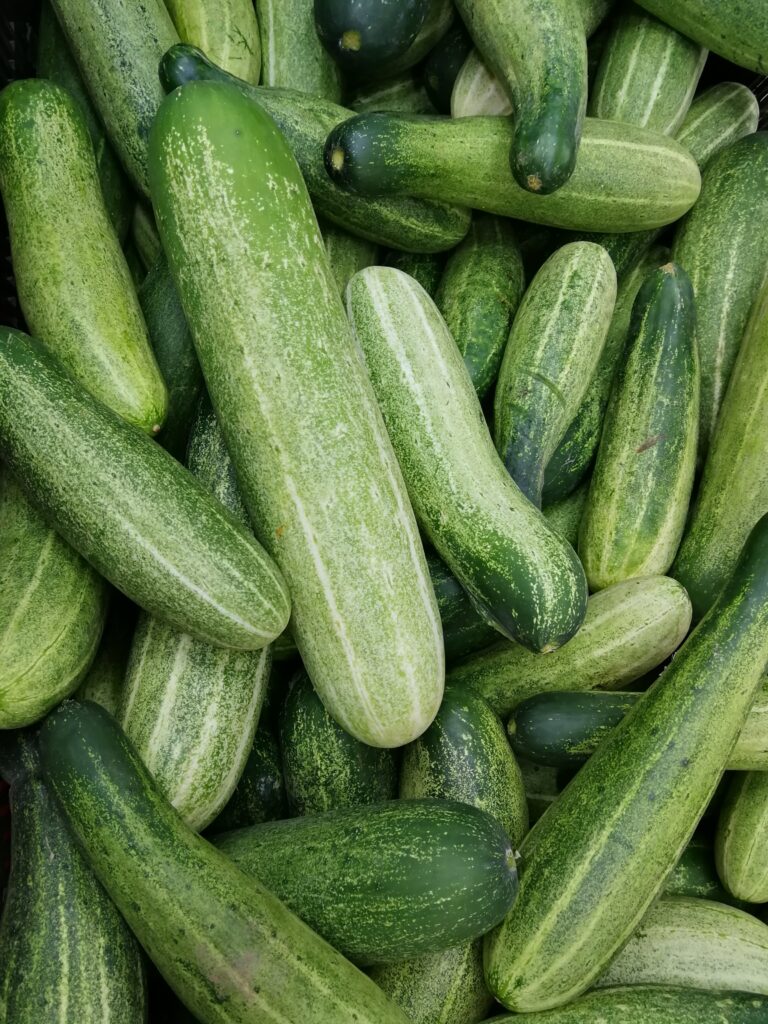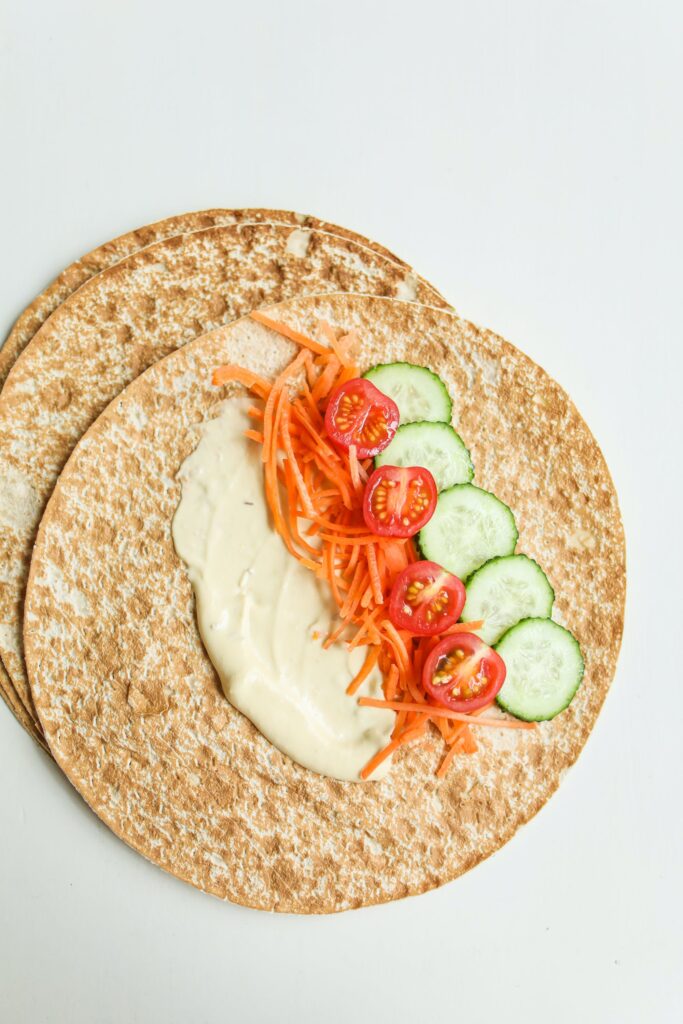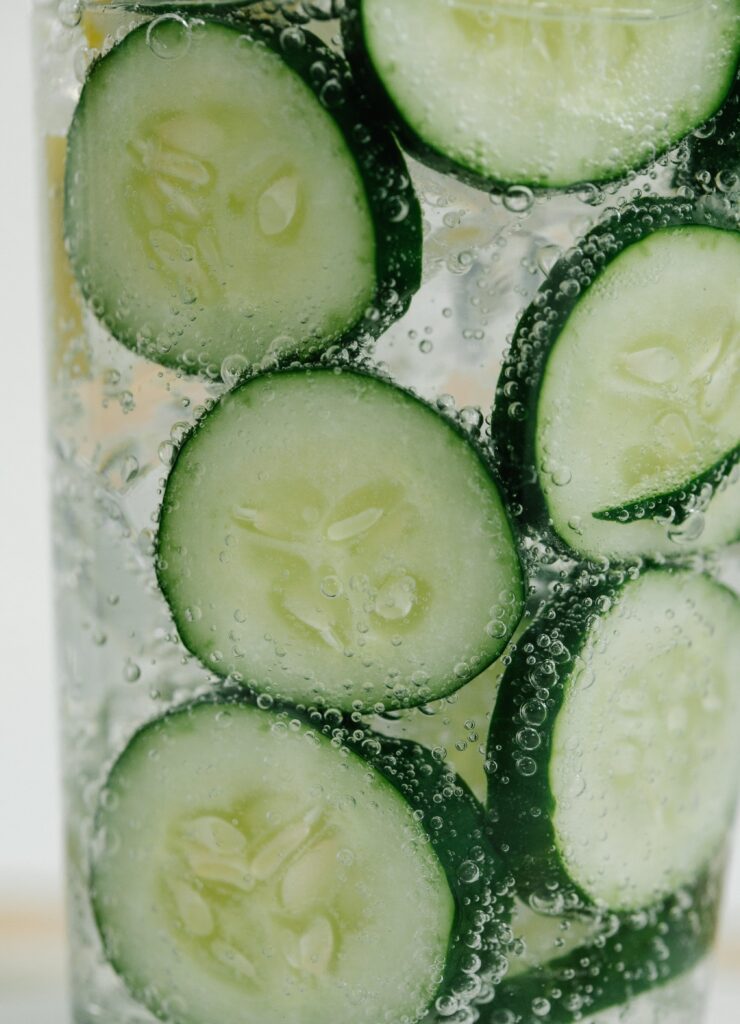
Cucumbers, or Cucumis sativus, are not only a staple in salads worldwide but also pack a powerful punch of nutritional benefits that can significantly enhance your health. This refreshing vegetable is known for its high water content and crisp texture, making it an ideal food for hydration and nutrition.
What Are Cucumbers
Cucumbers are a widely cultivated plant in the gourd family, Cucurbitaceae, known scientifically as Cucumis sativus. They are a popular vegetable that is primarily eaten fresh or pickled. Cucumbers are characterized by their crisp texture and high water content, over 95%, making them exceptionally hydrating.
Nutrition of Cucumbers
They are low in calories but rich in important vitamins and minerals, including vitamin K, potassium, and antioxidants, offering various health benefits from hydration and weight management to skin health and chronic disease prevention.

Types Of Cucumbers
Cucumbers come in a variety of types, each suited to different culinary uses. Here are some of the main types of cucumbers:
- Slicing Cucumbers: These are the most common type found in grocery stores, typically eaten raw. They have a dark green skin, a mild flavor, and are usually large and thick. Examples include the American slicer and European or English cucumbers, which are longer, thinner, and often sold wrapped in plastic to reduce moisture loss.
- Pickling Cucumbers: Smaller than slicing cucumbers, these have a bumpy skin and are used primarily for pickling. They are harvested when they are young and tender. Famous varieties include ‘Kirby’ and ‘Boston Pickling’.
- English Cucumbers: Also known as hothouse cucumbers, these are long, thin, and have a very mild flavor. They are almost seedless, with a thin skin that doesn’t require peeling. They’re typically grown in greenhouses, which is why they’re also called greenhouse cucumbers.
- Persian Cucumbers: Smaller and thinner than English cucumbers, Persian cucumbers have a sweet flavor and a crunchy texture. They are also nearly seedless and have a skin that’s tender enough to eat without peeling.
- Lemon Cucumbers: Named for their round shape and yellow color, which resembles a lemon, these cucumbers have a sweet, mild flavor. They are heirloom varieties that are perfect for salads and eating raw.
- Japanese Cucumbers: Long, slender, and dark green, these cucumbers have a crisp texture and are often used in sushi and salads. They are virtually seedless and have a skin that’s tender enough to eat.
- Gherkin Cucumbers: These are very small, young cucumbers, typically used for pickling. Gherkins are not a specific variety but rather refer to the size at which cucumbers are picked for pickles.
Each type of cucumber has its unique taste, texture, and culinary use, from fresh salads and sandwiches to pickles and garnishes. Whether you prefer them raw, pickled, or as part of a cooked dish, there’s a cucumber variety to suit every palate.
20 Health Benefits of Cucumbers
Here are the top 20 benefits of including cucumbers in your diet, underlined by their impressive nutritional profile and the myriad ways they can improve your health and well-being.
1. Hydration Boost
With cucumbers consisting of over 95% water, they are perfect for maintaining optimal hydration, crucial for every bodily function from skin health to kidney function.
2. Weight Loss Aid
The low calorie but high water content of cucumbers makes them a perfect snack for those looking to lose weight without compromising on nutrition.
3. Rich in Antioxidants
Cucumbers contain antioxidants like vitamin C and beta-carotene, as well as flavonoids that help fight harmful free radicals, reducing the risk of chronic diseases.
4. Supports Digestive Health
The water and fiber in cucumbers can promote regular bowel movements, essential for digestive health and preventing constipation.
5. Promote Heart Health
Potassium, magnesium, and fiber in cucumbers can help lower blood pressure, a significant factor in reducing the risk of heart disease.
6. Promote Bone Health
Cucumbers contain vitamin K, which is vital for bone health by improving calcium absorption and reducing the risk of bone fractures.
7. Helps Lower Blood Sugar Levels
Regular consumption of cucumbers may help control blood sugar levels, making them beneficial for people with diabetes.
8. Supports Skin Health
The hydration and anti-inflammatory properties of cucumber can lead to improved skin health, reducing irritation and providing a natural glow.

9. Cancer Prevention
Cucumbers have compounds that may play a role in cancer prevention by inhibiting the growth of cancer cells.
10. Enhances Immune Function
Vitamins A, C, and K, along with other nutritional compounds in cucumbers, support the immune system, helping to ward off infections.
11. Reduces Bad Breath and Supports Healthy Gums
Cucumber slices can help freshen your breath by eliminating bacteria that cause bad breath, making it a natural home remedy for oral health.
12. Improves Joint Health
The silica in cucumbers promotes joint health by strengthening connective tissue, beneficial for those with arthritis.
13. Alleviates Sunburn
Placing cucumber slices on sunburned skin can provide a cooling effect and reduce inflammation and discomfort.
14. Promotes Hair Health
The silicon and sulfur content in cucumbers can contribute to healthy hair growth and strength.
15. Detoxifies the Body and Promotes Healthy Kidneys
Cucumbers help in detoxifying the body by flushing out toxins, thanks to their high water content.
16. Enhances Brain Health and Has Cognitive Benefits
Cucumbers contain an anti-inflammatory flavonol called fisetin, which plays a vital role in brain health and protecting nerve cells from aging.
17. Eye Health
The high water content in cucumbers can help keep the eyes hydrated, reducing dryness and irritation.
18. Nutrient-Rich
Despite being low in calories, cucumbers are rich in essential vitamins and minerals, contributing to overall nutrition without weight gain.
19. Balances Hormones
Cucumbers may have a beneficial effect on hormone balance due to their phytonutrient content, contributing to overall well-being.
20. Versatility in Diet
Cucumbers can be enjoyed in various forms—raw, in salads, as cucumber juice, or even as part of home remedies, making them a versatile addition to any diet.
Tips for Consuming Cucumbers
Consuming cucumbers can be both refreshing and beneficial for your health. Here are some tips to maximize their benefits while enjoying them safely:
- Wash Thoroughly: Always wash cucumbers under running water before eating to remove any pesticides or bacteria. Using a vegetable brush can help clean the skin more effectively.
- Peel or Not to Peel: The skin of cucumbers is rich in fiber and nutrients, but if you’re concerned about pesticides or have a sensitive digestive system, peeling them is a good option. Organic cucumbers can be eaten with their skin for added nutritional benefits.
- Moderation is Key: Although cucumbers are healthy, eating them in moderation is important to avoid any potential digestive discomfort or nutritional imbalances.
- Incorporate into Meals: Add cucumbers to salads, sandwiches, and wraps to increase your vegetable intake. They can also be juiced or blended into smoothies for a hydration boost.
- Experiment with Recipes: Try making cucumber-based dishes like cold cucumber soup, cucumber salsa, or pickled cucumbers to enjoy their flavor in different ways.
- Use as a Snack: Slice cucumbers and dip them in hummus or yogurt-based dips for a healthy and crunchy snack.
- Stay Hydrated: Cucumbers have a high water content, making them great for staying hydrated, especially in hot weather or after exercising.
- Choose the Right Type: Depending on your recipe or preference, choose the cucumber variety that best suits your needs, such as English cucumbers for salads or pickling cucumbers for homemade pickles.
- Store Properly: Keep cucumbers in the refrigerator to maintain their freshness and crispness for longer. Wrapping them in a moist towel can help prevent them from drying out. More on how to store cucmumbers properly further down in this post.
- Check for Allergies: If you have never eaten cucumbers before, start with a small amount to ensure you don’t have an allergic reaction.
By following these tips, you can enjoy cucumbers in a variety of tasty and healthy ways while taking advantage of their numerous health benefits.

Side Effects Of Cucumber
While cucumbers are generally safe and beneficial for most people, consuming them in excessive amounts can lead to some side effects, including:
- Digestive Issues: Cucumbers contain cucurbitacins and other compounds that can cause indigestion, gas, or bloating in some individuals, especially when eaten in large quantities.
- Allergic Reactions: Although rare, some people may have an allergic reaction to cucumbers, resulting in symptoms such as itching, swelling, and difficulty breathing.
- Risk of Toxicity: Bitter-tasting cucumbers can indicate high levels of cucurbitacins, which can be toxic. Consuming bitter cucumbers should be avoided.
- Hydration Overload: Due to their high water content, eating a large number of cucumbers in a short period could potentially lead to water intoxication, disrupting electrolyte balance.
- Vitamin K Overdose: Cucumbers contain vitamin K, which is involved in blood clotting. Consuming them in very high amounts may interfere with blood-thinning medications like warfarin.
It’s important to consume cucumbers as part of a balanced diet and be mindful of individual tolerance levels to avoid these potential side effects.
Who Should Avoid Cucumbers
Individuals with known allergies to cucumbers should avoid them, as consuming cucumbers could trigger allergic reactions ranging from skin rashes to more severe symptoms. People with digestive issues such as acid reflux might also find that cucumbers, especially if eaten in large quantities, can exacerbate their condition due to cucumbers’ cucurbitacin content, which can cause gastrointestinal discomfort for some.
Additionally, those on blood-thinning medication should consult with a healthcare provider before consuming cucumbers in large amounts, as their vitamin K content can affect blood clotting.
How to Consume Cucumbers
Cucumbers are incredibly versatile and can be consumed in various delicious and healthy ways:
- Raw in Salads: Slice or chop cucumbers and add them to salads for a refreshing crunch. They pair well with tomatoes, onions, feta cheese, and a variety of dressings.
- As Snacks: Enjoy cucumber slices or sticks on their own, or dip them in hummus, yogurt, or your favorite dip for a nutritious snack. You’ll Love these Hummus and Cucumber Bites.
- In Sandwiches and Wraps: Add thinly sliced cucumbers to sandwiches and wraps for added moisture and crunch.
- Juiced or in Smoothies: Juice cucumbers for a hydrating drink, or blend them into green smoothies with fruits and leafy greens for a nutrient-packed beverage.
- Pickled: Make your own pickled cucumbers at home with vinegar, salt, and herbs for a tangy treat that lasts several weeks in the refrigerator.
- In Cold Soups: Use cucumbers as the base for cold soups like gazpacho or cucumber yogurt soup, perfect for hot weather.
- Infused Water: Slice cucumbers and add them to water with herbs like mint or citrus slices for a refreshing and spa-like infused water.
- Grilled or Sautéed: Although less common, cucumbers can be lightly grilled or sautéed for a warm side dish. Cooking them quickly retains some crunch.
- In Sushi: Cucumber is a classic ingredient in sushi rolls, adding freshness and crunch.
- As a Garnish: Use thin cucumber slices or ribbons to garnish drinks and dishes for a decorative and edible touch. Just like this Cucumber Gin and Tonic!
Consuming cucumbers in these various forms can help you enjoy their nutritional benefits, including hydration, vitamins, and minerals, in a tasty and enjoyable way.

Easy Cucumber Recipes
Here are a few of my favourite ways to use cucumbers in recipes:
- Classic Cucumber Salad: Slice cucumbers thinly and toss with vinegar, olive oil, salt, and dill for a refreshing side dish. Add red onions and cherry tomatoes for extra flavor. Suggested: Cucumber Salad
- Cucumber Yogurt Dip (Tzatziki): Combine grated cucumber with Greek yogurt, garlic, lemon juice, and fresh dill for a cool and creamy dip perfect for pita bread or fresh vegetables. Suggested: Cucumber Dip
- Quick Pickled Cucumbers: Slice cucumbers and marinate them in a mixture of vinegar, water, sugar, salt, and dill. Refrigerate for a few hours before serving as a tangy snack or side.
- Cucumber Avocado Toast: Mash avocado on toasted bread, top with sliced cucumber, a squeeze of lemon, and a sprinkle of salt and pepper for a quick and healthy breakfast or snack.
- Cucumber Smoothie: Blend cucumber with green apple, spinach, lime juice, and a bit of honey for a refreshing and hydrating green smoothie. Suggested: Cucumber Smoothie.
- Cucumber and Bean Salad: Mix sliced cucumbers with black beans, red onion, feta cheese and a tangy vinaigrette. Find the full recipe here!
- Cucumber Mint Water: Add slices of cucumber and fresh mint leaves to a pitcher of water. Chill for an hour to allow the flavors to infuse for a refreshing drink.
- Cucumber Sushi Rolls: Use thin cucumber strips as a wrap for sushi ingredients like sushi rice, avocado, and smoked salmon or crab meat for a low-carb sushi option.
- Creamy Cucumber Soup: Blend cucumbers with avocado, yogurt, garlic, and fresh herbs, then chill. Serve cold with a drizzle of olive oil and cracked black pepper.
- Cucumber and Feta Cheese Bites: Slice cucumbers into thick rounds and top with a mixture of feta cheese, lemon zest, and herbs. Secure with a toothpick for an easy and elegant appetizer.
These easy cucumber recipes highlight the versatility of cucumbers, making them a staple ingredient for refreshing salads, dips, drinks, and more.
Impressive Benefits of Other Foods
- Benefits of Kale Juice
- Benefits of Carrots
- Benefits of Strawberry Juice
- Benefits of Dates
- Benefits of Eating Papaya Seeds at Night
Final Thoughts
Including cucumbers in your diet offers a multitude of health benefits, from hydration and weight loss to improving heart health and reducing the risk of chronic diseases like diabetes and cancer. As with any dietary change, it’s essential to consider professional medical advice, especially if you have underlying health conditions. Cucumbers are not just a refreshing snack but a powerful food that can significantly contribute to your overall health and nutrition.

Christopher is a food and lifestyle expert, recipe developer and the content creator behind May Eighty Five. With years of experience in the kitchen, he also shares tips, tricks and how to’s that he has learnt over the years. Every week, he shares quick, simple and mostly healthy recipes along with some home and entertaining tips. You will find flavorful cocktails, delicious appetizers, tasty mains and some indulgent desserts. As a home decor enthusiast, he also likes to share simple DIY projects and simple tips for a beautiful home.








One Comment